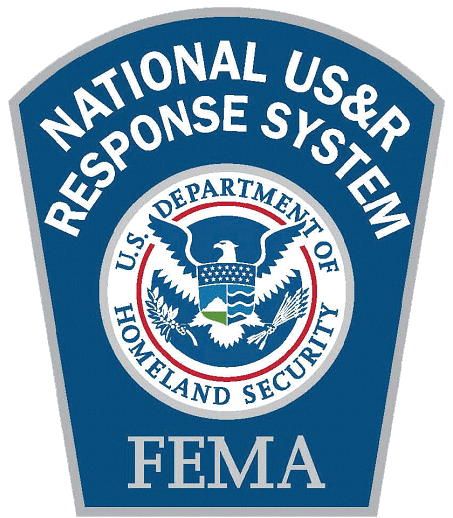FEMA US&R Canine

Role of the Canine
Canine search teams play a critical role in supporting local and state response efforts with the capability to locate disaster survivors and human remains using canine teams (dog and human handler).
Canine search teams are trained to work and detect in any environment and are not limited by noise, equipment or distractions. Due to their heightened sense of smell, dogs can detect live human scent, even if a survivor is buried deep in rubble. The canine teams specialize in two key areas: detecting survivors (live find search) and detecting people who are deceased (human remains detection).
Each canine has a trained handler. At least four canine search teams deploy with each 70-member, Type 1 US&R task force. The most common breeds in the system are Labrador, German Shepherd, Golden Retriever, Malinois, and Border Collie. Canines are a minimum of 18 months old and the average age of our canine team members is about 7 years old.
As of March 2020, there are 284 canine search teams that specialize in searching for survivors and 90 teams that specialize in searching for human remains.
Find Out More
For information on any of the 28 FEMA US&R Task Forces and how to join, click here.
